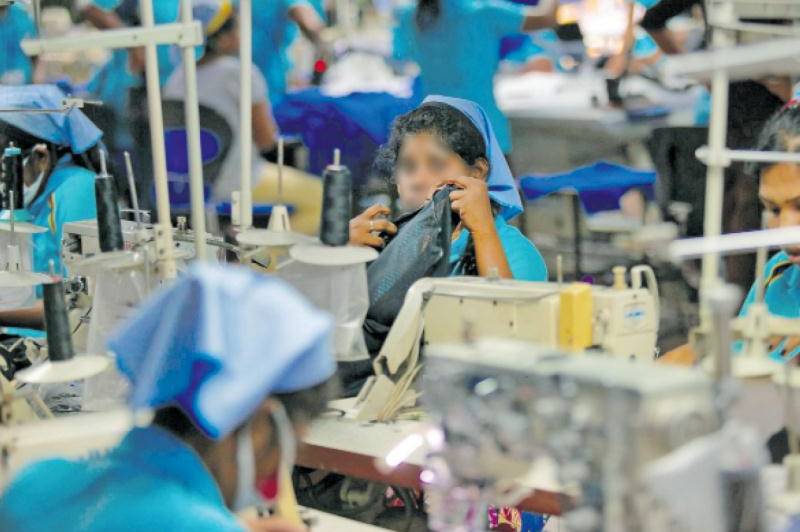By Wasana Gamagewaththa
Gender equality is a fundamental human right and a precondition for sustainable development. It is one of the 17 goals included in the 2030 Agenda for Sustainable Development (SDGs) adopted by all nations of the United Nations (UN) in 2015. Goal 5 is “to achieve gender equality and empower all women and girls”.
In Sri Lanka, out of a 21,485,353 population, 50.7% are women and they contribute to the country’s economy through regulated and unregulated occupations. Women participation can be seen in all three sectors – agriculture, industry, and services. The foreign employment markets for Sri Lankan workers were mainly dominated by women for several decades. Remittances, mostly from female workers, play a significant role in our country’s economic development. According to the annual report of the Sri Lanka Bureau of Foreign Employment (SLBFE), female migration for employment was 39% in 2018.
Investing in women empowerment drives economic prosperity for all, improves health outcomes, and creates more peaceful and sustainable societies. Women’s economic empowerment is a key entry point for eliminating the gender gap and also achieve sustainable economies. Limited access to credit and other financial services for women, limited physical access to the job market for rural women, unequal property access for women, and limited representation of women in decision-making processes and in political institutions can be considered the greatest barriers for economically empowering women in Sri Lanka.
Female labour force
The Labour Force Survey (LBS) carried out by the Department of Census and Statistics shows that the majority of females (73.7%) are in the economically inactive group in 2019. Only 34.5% of women participate in the labour force, compared to 73% of men in 2019. Furthermore, it shows the unemployment rate has doubled for females (7.4%) in comparison to males (3.3%) in 2019. Especially, the unemployment rate for rural women is higher (7.7%) than urban (6.8%) and estate (5.3%) women.
The LBS 2019 found that the percentage of women in managerial positions was at 25.6% in 2019, indicating severe underrepresentation of women in the decision-making process in Sri Lanka. There is also an urgent need to refocus policies and programmes to be fully responsive to the rights, priorities, and needs of older women. Increasing the labour force participation of older workers by reducing labour market rigidities is an important way to improve the size of the labour force with ageing.
Women in rural areas have weak access to land ownership. Male dominance in property ownership can be seen in most areas. Women’s ownership of small and medium-sized enterprises (SMEs) is at a very low rate in Sri Lanka. The call for government intervention to introduce policies to promote equal rights of men and women to land, housing, and properties is therefore compelling. Furthermore, provision of training using modern technology to enhance business skills of rural women through vocational training centres is a way to enhance women ownership of SMEs. Lack of awareness among rural women on opportunities to access and benefit from financial services, especially micro-credit programmes, is another issue to be addressed through well-designed financial services to enhance financial skills and literacy.
International best practices
The world over, countries are adopting different approaches to enhance women’s economic empowerment.
Knowledge hub facilities for agriculture sectors are famous for their contribution to empower women in the agriculture sector, mainly by promoting networks, introducing new techniques, supporting learning, and innovation, giving access to resources for women. According to the Pacific Risk Resilience Programme, countries like Vanuatu, Solomon Islands, and Fiji have established more than one knowledge hub in their communities. The Oxfam Knowledge Hub on Women’s Economic Empowerment in Agriculture’s platform is an online community where Oxfam and other stakeholders share knowledge and experiences on women’s empowerment in the agricultural sector.
The Gendered Enterprise and Markets (GEM) Toolkit is an approach for sustainable livelihoods development, driving change in markets and social systems to empower women. Improving smallholder access to agricultural markets and women’s economic leadership, adaptation and reduction of risks, including climate change, are the key elements in this approach which can be used to empower women in small-scale industries. Sri Lanka is also a partner of GEM.
Rapid Care Analysis is an approach that can be used to empower women by identifying how care responsibility impacts women’s time, health, or mobility and identifies practical interventions to ensure that women can fully participate and benefit equally from development programmes. It is a set of exercises for the rapid participatory assessment of unpaid household work and care of people in communities. According to this approach, assessment of care shows how women’s responsibility for care work may impact their participation in or benefitting from development projects. It will be helpful to identify and understand care work in women and find practical solutions to problematic tasks and patterns of care.
Plans in Sri Lanka
The national policy framework “Vistas of Prosperity and Splendour” includes several strategies aimed at empowering women in Sri Lanka. The policy focuses on enhancing the living conditions of rural women by introducing home-based enterprises. To encourage women and increase labour force participation, the policy focuses on introducing flexible working arrangement for young mothers. The policy also focuses on uplifting women entrepreneurs and enhancing the involvement of village women in economic activities. The 2021 Budget proposes the setting up of a retail shop in each grama niladhari division as a means of encouraging women entrepreneurs from Samurdhi low-income families, creating opportunities for them to be engaged in economic activity. This is a timely initiative to support rural women in Sri Lanka.
While these initiatives are appreciable, achieving gender equality in Sri Lanka (within the meaning of SDG 5) further requires a holistic approach giving more attention to economic, social, and political empowerment of women.
(The writer is a Sustainable Development Officer of the Sustainable Development Council of Sri Lanka)
(Aruna)

